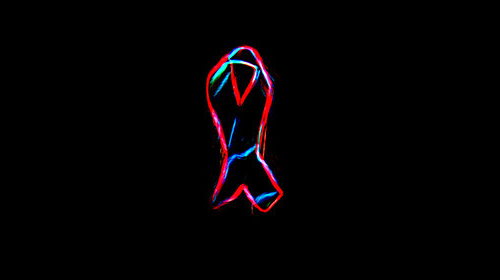AIDS Conference 2012 – ACLU Continues Fighting to “Turn the Tide Together”


This week, Washington will host the . This is the first time since 1990 that the U.S. will host the major international gathering on the AIDS epidemic. The reason for this is that in 1987, Congress passed legislation prohibiting people living with HIV from traveling into the United States. Under the ban, those living with HIV were listed as having a “communicable disease of public health significance.” Rooted in the fear and prejudice that was an ever-present reality in those days, the ban imposed an unfair burden on tourists, short-term visitors, and foreigners seeking to live in the U.S. In 2009, President Obama finally , following a 2008 statutory repeal vote in Congress, correctly pointing out that if the U.S. wants to be a world leader in the fight against HIV/AIDS, “we need to act like it.”
Thanks to the demise of the HIV travel ban, thousands of advocates from around the globe, including many people living with HIV and AIDS, will gather in the nation’s capital to discuss the groundbreaking advancements in modern science and medicine for treating HIV/AIDS, the progress made in the fight against discrimination, and the remaining challenges in the pursuit of a cure for HIV and equal treatment for those living with HIV. The theme of the 2012 conference – “Turning the Tide Together” – recognizes the hope and renewed optimism of those working to end the HIV epidemic, while serving as an urgent call to action. The ACLU is proud to answer that call, and will continue to advocate for the civil rights and fair treatment of those living with HIV/AIDS.
The 2012 International AIDS Conference is a unique opportunity to reflect on how far we have come as a nation, and as a global community, since the outbreak of the AIDS epidemic. Today, thanks to advances in modern medicine, HIV is a chronic, but manageable condition, and prevention strategies are improving around the world. Better understanding of HIV has led to stronger protections for people living with HIV. Anti-discrimination safeguards in housing, employment, and access to medical care have improved the lives of many. But there is still much more to be done. The ACLU looks forward to advancing policies and changes in our laws that reflect the realities of the 21st century, rather than the stigmas and prejudices of the past.
The ACLU has been a leader in fighting discrimination against people living with HIV/AIDS, and continues to work towards ending the prejudice, ignorance, and stigma surrounding HIV/AIDS. For decades, the ACLU AIDS Project has improved the lives of people living with HIV/AIDS through litigation challenging discrimination by government and private actors, and through our advocacy on state and federal legislation.
In Congress, the ACLU is a strong supporter of the REPEAL HIV Discrimination Act, introduced in the House of Representatives by Rep. Barbara Lee (D-Calif.), which would establish a national framework to reform outdated criminal laws that target people living with HIV. Today, 34 states criminalize HIV status through such laws. These laws reflect the fear, misunderstanding, and prejudice that surrounded HIV decades ago, and have no place in state and federal criminal codes.
The ACLU has also long called for a review by the Department of Health and Human Services of the lifetime ban on blood donations by gay and bisexual men. Decisions on who is an eligible blood donor must be based scientific evidence, rather than outdated, discriminatory stereotypes and assumptions. While there is no constitutional right to donate blood, government policy regulating the blood donation field must not discriminate on the basis of sexual orientation by adopting differing standards for conduct that poses similar risks based solely on the identity of those engaging in such conduct. As long as the civil and human rights of people living with HIV are on the line, the ACLU will continue to champion respect, dignity and the march toward full equality.
Learn more about HIV/AIDS discrimination: Sign up for breaking news alerts, , and .



